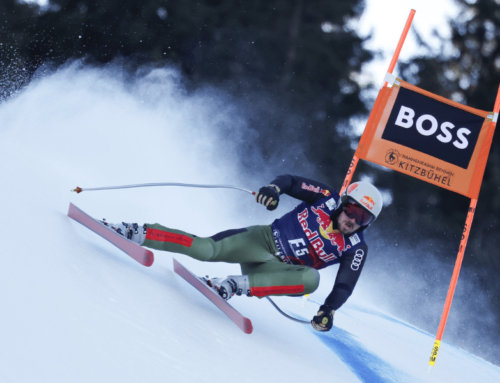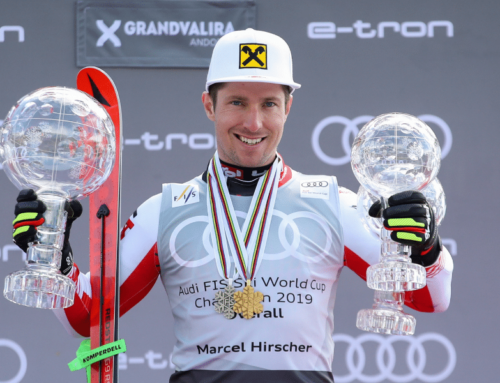Germany wins experimental Nations Team Event in Bormio
Germany wins experimental Nations Team Event in Bormio BORMIO It wasn’t perfect, but it was perfectly fun.
BORMIO It wasn’t perfect, but it was perfectly fun.
The first nation’s team event, long stymied by the Austrian Ski Federation, was a resounding success as Germany stunned the alpine super powers and ran away with the inaugural gold medal.
The Austrians took silver and France hung on to edge the United States off the podium by one point, taking the bronze medal.
The Nations Team Event is comprised of a super G run and one slalom run. Teams are comprised of 6 athletes, each of whom must run at least once. There are four heats in each discipline, two men’s and two women’s. Scoring is by points with the heat winner awarded one point, 2nd two, etc. A DNF or DSQ was given nine points. The team with the lowest score took the gold.
The contest, first suggested by FIS President Gian Franco Kasper eight years ago, was the subject of cynical comments by press, coaches and fans leading up to the event which closed the 2005 alpine World Championships. Entirely new, the team event seemed complicated at first it is similar to, but less complex NCAA scoring to both athletes and fans, but as the first two heats concluded, fans, athletes and coaches knew exactly what needed to be done.
The United States put itself in a hole early in the competition and tried to play catch up all day, but it was not to be. Julia Mancuso, the women’s double bronze medalist, failed to negotiate the course on the men’s downhill track, saddling the team with a DNF and nine points. ‘It was bumpy’ Mancuso said, ‘and very turny. I just went too straight.’
Bode Miller then blazed down to win his heat, but Lindsey Kildow skied off the Stelvio Piste as well. It put the USA in a hole they could never dig out of.
‘I was giving it all I had, I wanted to do something cool for the team. When I knew I wasn’t going to finish I just tried to chuck it so I could make it, but I flew off that roll at the bottom and didn’t have a chance’ Kildow said, shaking her head.
Daron Rahlves put the team back in the hunt by posting the fastest super G time of the day, doing the now well known Rahlves thing, simply acing the knarliest part of the course, a bumpy fall away turn which was more than demanding for all other competitors.
The Austrians skied their usual strong races, but failed to win a super G heat. Renate Goetschl didn’t help the Austrian cause posting a so-so super G effort, fifth. Fortunately for Austria, her other teammates finished no lower than third in the other super G heats.
With the United States struggling, the German’s were racing unlike any time in the championships. Martina Ertl skied the best run of her championship, winning her super G heat outright. Hilde Gerg and Florian Eckert grabbed second place in their respective heats. Andreas Ertl struggled to seventh, but it was enough to take Germany up to the slalom start tied with the mighty Austrians.
And from the slalom start, the Germans were not to be denied. Martina Ertl took third in her heat, but the Austrians fumbled when Nicole hosp skied out, saddling nine big points to the Austrian total.
Felix Neureuther, a young German gate racer, won his heat, knocking off Italian slalom bronze medalist Giorgio Rocca and gold medalist Benni Raich, in the effort. Miller, as he is want to do in slalom these days, skied out, insuring the US would not get on the podium.
When Monika Bergmann-Schmuderer won her slalom run over Austrian youngster Kathrin Zettel, the celebrating began as no one could catch the Germans, no matter what the result of the final men’s slalom run.





















